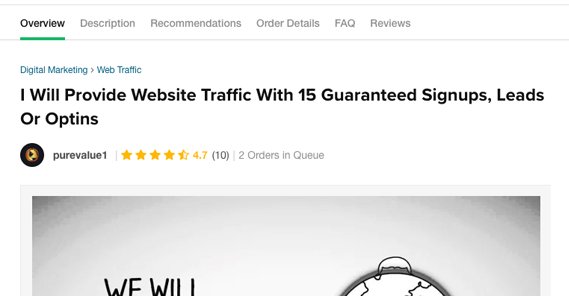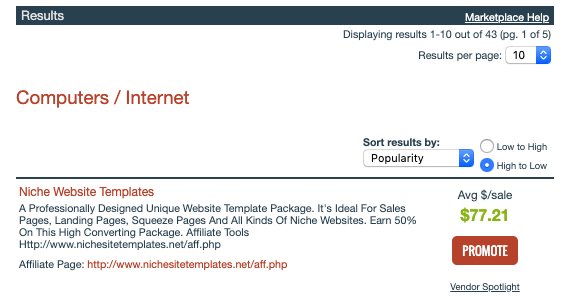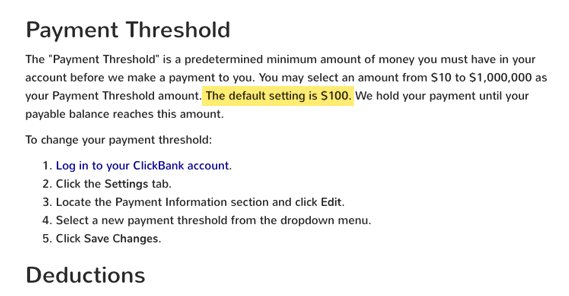What Are Guaranteed Signups and How Do They Work?

Web marketing is a constant struggle to get your product, offer, or advertisement in front of as many people as possible, with an emphasis on making that audience the right group of people who are willing to convert.
If you’re selling a product but no one buys, you’re not making money. If you’re running advertisements and no one clicks, you’re not making money. If you’re promoting an affiliate offer and no one signs up, you’re not making money.
With affiliate marketing, with CPA advertising, and with various forms of sales jobs, you need to get people to sign up for a service – or even just a mailing list – to get paid. You need those sign-ups, and you need them in volume.
What if I told you that you could skip all of the tedious work of audience building, content marketing, analysis, and optimization? What if I told you that you could just pay a small fee – smaller than your commissions, most likely – and get guaranteed sign-ups? What would you say if I told you that?
If you would say “That sounds like a scam to me” I’d tell you that you’re absolutely correct. Guaranteed sign-ups exist, but they aren’t real, if you catch my meaning. And if you don’t catch my meaning, well, I’m going to explain it in great detail.
What Are Guaranteed Sign-Ups?
The idea of a guaranteed sign-up is simple. You pay me a fee and I get 100 people to click your affiliate link and sign up for the offer. Let’s say you get paid $1 per sign-up; that’s $100. I charge you $50 for the service.
What’s not to love? It’s basically free money for you. You give me a bit of money so I can profit from my own efforts, and you get money from the guaranteed sign-ups I offer you.
This kind of guaranteed sign-up service is available all over the place these days. Sites like Fiverr and its spinoffs, the various SEO metric sellers, and other marketing middlemen all offer something. It’s an old service that died out for a while, but is making a comeback with a new generation of internet marketers trying to make their way in a new world.
So if this service exists, why doesn’t everyone use is? Is there some secret at play? It certainly sounds too good to be true.
What Are Guaranteed Sign-Ups, Really?
While the idea of a guaranteed sign-up is simple, the actual implementation is not. After all, if it were really that easy to just pay a fee to double your money, everyone would be doing it. Since everyone is decidedly not doing it, it must not be a real technique.
And, indeed, there are a lot of different ways for these sellers to screw you over.
First off, many of them just take your money and run. They don’t need to worry about being banned from a platform, they’re filtering everything through six layers of services to protect themselves, fake names, and other baffles. You pay the seller and the seller sends you some kind of confirmation, and then they disappear. You never get your sign-ups, you never manage to contact them again, and the best you can do is get their now-abandoned profile banned from Fiverr or whatever.
You can get your money back in these instances through a bank-issued charge-back, as long as you didn’t do something stupid like take it to Western Union, Bitcoin, or some other un-refundable and un-regulated payment method.
This isn’t the most likely option, though. Many of these scammers don’t want to burn their bridges and disappear, because setting up a new “life” and a new profile every time they burn a customer is a time-consuming process.
The second possible option is they’re using bot accounts. This may be slightly more sophisticated depending on whether or not your commission is a CPA or an affiliate service.
In the event of a CPA sign-up, often times all you need to get paid is the sign-up. The user doesn’t need to pay, because all you’re trying to promote is the lead. It’s up to the company you’re giving the leads to, to do the vetting and sales. This is the easiest to scam, because it takes a while for the business at the other end to track down all these unqualified leads and trace them back to you.
Of course, once they do trace them back to you, the business is going to have some uncomfortable questions for you. Questions like “why do your sign-ups have a 0% conversion rate?” and “why should we keep you as part of our program?” Generally, the answer is they shouldn’t. They’re going to drop you due to low quality referrals. Usually they track and blacklist your domain and/or IP for your accounts, emails, payment information, or whatever else they need to make sure you don’t try to toss on a beaglepuss and try to get back in.
What if you don’t get paid until the user makes a purchase? Well, one of two things will happen here. Either you’ll get nothing and the seller will make excuses, or you’ll get purchases. Don’t get me wrong, though; when you get those purchases, they aren’t real purchases. It’s still fake accounts making those purchases, and it’s very likely that the financial information they’re using to do it is stolen.
This is one common means of committing credit card fraud and identity theft. These fake accounts are powered by phishing scams or other stolen information. You’re paying a scammer to use stolen information to “buy” a service that they quickly cancel, or even that they don’t. They don’t care.
The company, of course, won’t take kindly to the charge-back and the questions about why stolen information is being used to buy their services. They will, again, trace it back to you and decide to remove you from their program because all you’re doing is referring fraud to them. Even if you have some legitimate referrals in there, the fraud is too much to deal with.
Then there’s the third possible option, which relies on your target service having tiers of service packages. What they do is send over free sign-ups, but never pay for a service.
The problem here is that you, of course, don’t make money unless the user actually converts to a paid account. Starting up a free trial – and then cancelling it – or just signing up for a free package isn’t going to get you any commissions.
This one isn’t even fraud; you’re getting what you’re paying for. That’s the trick. They put fine print somewhere on their website or in their package details, and they hope you don’t read the part where they say “we only offer free sign-ups; you’re not paying for us to pay for anything.” After all, they want to make money, and if they’re spending money on services that cost more than you’re paying them, they aren’t making money.
The Other Side of the Business Model
So what’s going on in the guaranteed sign-ups side of the coin? We’ve talked about the fraud, but that’s not always the business model. In fact, you’ve probably seen the business model in other locations, but didn’t connect the two.
Have you ever seen a site that offers to pay you if you claim free offers? If you sign up for this shady service, they’ll give you $3. If you sign up for this Netflix free trial, you’ll get $5. If you sign up for this software, you get $1.50.
In modern days, these businesses have evolved. You’ll find many apps that do the same thing now, and instead of offering money right out, they offer Google Play cash, or they even just offer in-game currency for various popular mobile games.
What do you think is going on here? These companies can’t get paid for you signing up for a free service, so what good does it do them? Well, the answer is, you’re becoming part of their network of people signing up for services when the affiliate pays for it.
The scammer maintains their app and their network of connections, as well as a site where they sell their sign-ups. Some hapless business comes along and pays for 100 sign-ups; they throw that offer into their network until they record 100 people have signed up – for the free accounts, of course – and cut it off when the number is up.
There’s no targeting here, there’s no filtering, there’s no guarantee of quality. In fact, since the amounts they pay out are so low, it’s almost a guaranteed filter that keeps out any worthwhile or real potential customers. It’s almost exactly the opposite of the audience you really want for your affiliate links or product ads.
On top of this, these apps and websites tend to have very high minimum payouts, and they often make it nearly impossible to actually successfully complete and verify an offer. I’ve played around with them in the past, and usually you end up being filtered through half a dozen or more redirects, all with tons of ads on each page, before you even get to the offer you’re supposed to sign up to. Sign up for the wrong offer, click the wrong ad, or fail to fill out the forms properly, and your sign-up won’t count. On top of that, they’ll disqualify you for blocking scripts, blocking ads, and in some cases even if the redirect takes too long.
So the audience has an incredibly high turnover rate once people experience the fact that every offer they do only puts them one thousandth of the way towards getting a $10 gift certificate to Applebee’s or a handful of Google currency or something.
Of course, these businesses are not above a little lying to get ahead. If you’ve ever looked into buying guaranteed sign-ups, you’ve likely found a bunch of positive reviews for the service you’re looking into. And why wouldn’t you? If it’s a legitimate service, it would have great reviews! And if it’s a scammer, they would find it trivial to register a few dozen accounts, or even register their own side blogs, solely to promote their own business. A few good reviews on seemingly disconnected sites will dramatically increase the viability of their scam.
Every single aspect of these businesses is shady and optimized to make the business itself as much money as possible from every angle. Some of them even charge to sign up to their money-making networks! They get paid from every angle, very rarely pay out anything, and utilize fine print to make sure everything they’re doing is disclosed and “legal” even if it’s a little immoral. No one on either end is likely to attempt to sue them, and even if they did, they might find the business is actually based in India or Pakistan or some other country where actually pursuing legal repercussions is nigh-impossible for a foreigner.
Unfortunately for every marketer looking for a get rich quick plan, and willing to spend some money for it, it’s always going to be too good to be true. You just have to stick to what works; content marketing. Otherwise, you get to play the fool in the phrase “A fool and his money are soon parted.”
 ContentPowered.com
ContentPowered.com









